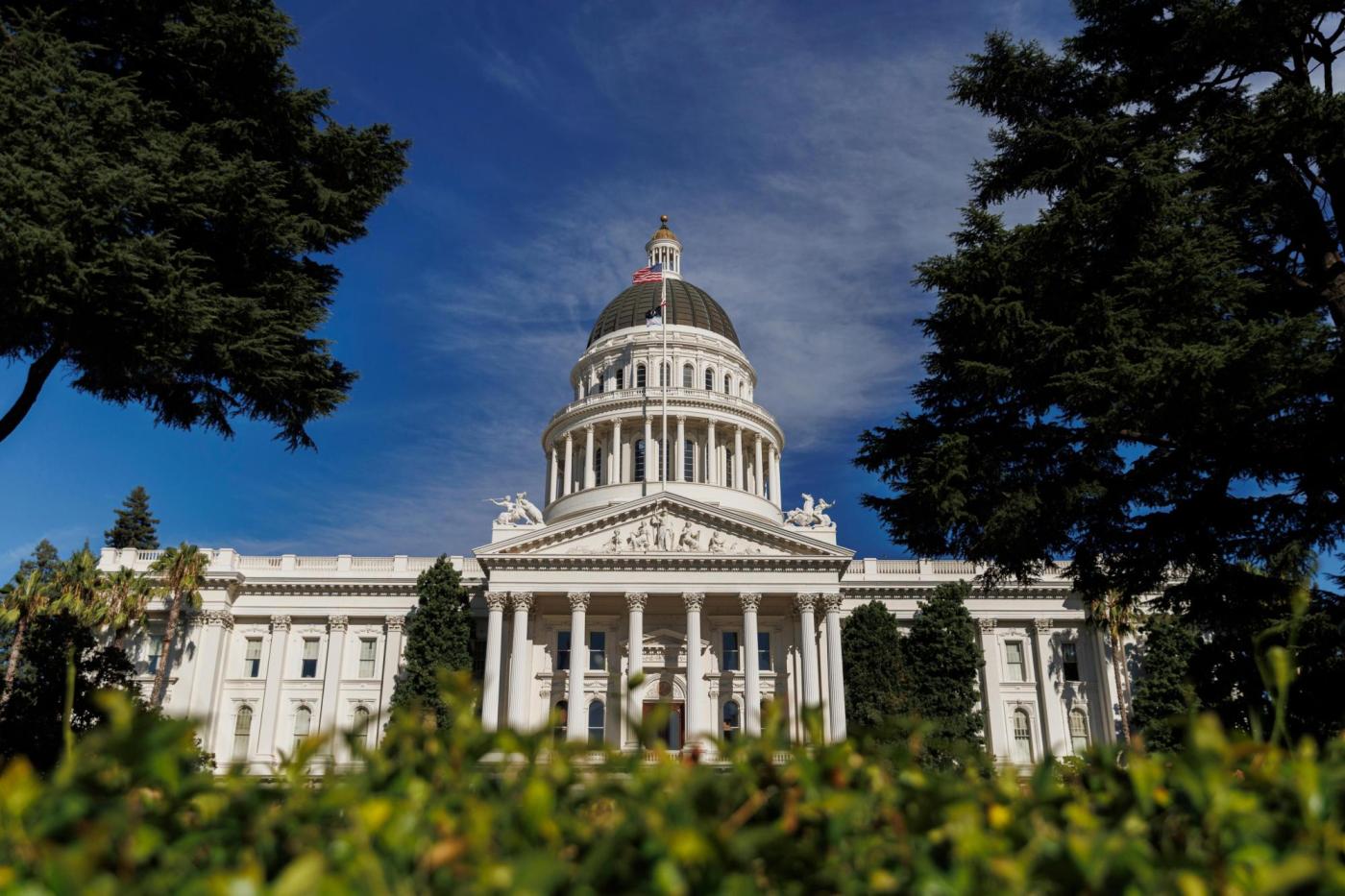One company offers Bay Area employers artificial intelligence that filters potential hires by combing through 10,000 public online sources looking for references to violence or illegal drugs. Another uses the technology to scan workers’ office emails for signs of dissatisfaction or burnout. Others offer AI analysis of workers’ every online action in the workplace.
As artificial intelligence gives new, powerful tools to employers seeking to streamline hiring and monitor workers, a bill is advancing through the California Legislature to address fears that the technology could unfairly deny workers jobs and promotions or lead to punishment and firings.
The “No Robo Bosses Act” — Senate Bill 7 — seeks to impose human decision-making over certain workplace-automation technology. Introduced by state Sen. Jerry McNerney, a Pleasanton Democrat, it passed the state Senate in a 27-10 vote earlier this month.
“When it comes to people’s lives and their careers, you don’t want these automated decision-making systems to operate without any oversight,” McNerney said.
If passed, SB 7 would bar employers from relying “primarily” on automated decision-making software for promotion, discipline or firing of employees. Any automated decision would need to be reviewed by a person who must investigate and “compile corroborating or supporting information for the decision,” the bill said.
The bill, which heads to the state Assembly’s Labor and Employment Committee on June 25, also would ban employers’ use of products that aim to predict workers’ behavior, beliefs, intentions, personality, psychological or emotional states, or other characteristics.
McNerney’s office in March issued a news release with a link to a list of companies purportedly selling “bossware” workplace-management technology. Some of the businesses offer products that could violate provisions of the bill, particularly a ban on software that infers workers’ mental states. Others, like Bay Area firm Braintrust, sell software that automates hiring processes, which the original version of the bill would have banned.
“With recent dramatic advances in the capabilities of AI systems, the need for regulatory frameworks for accountability and responsible development and deployment have become ever more urgent,” an analysis for the state Senate Judiciary Committee said.
One AI company on the list, Veriato of Florida, markets its product’s ability to analyze workers’ emails to “detect signs of dissatisfaction or burnout,” and “pinpoint disgruntled workers and possible security risks.” Another on the list, Cogito of Boston, touts its “Emotion AI and Conversation AI” that analyze call center workers’ voices to give their supervisors “visibility into live conversations of their teams.”
Veriato and Cogito’s parent company, Verint, did not respond to questions about their products and the bill.
Other offerings from the hundreds of companies on the list include eye tracking, keystroke recording and analysis of workers’ online actions in the workplace, from text messaging and app usage to web browsing.
The provision to prohibit fully automated hiring was removed by the Senate Judiciary Committee, with McNerney’s consent, the committee analysis said. The California Chamber of Commerce, leading a coalition opposing the bill, had objected to including hiring, contending only the smallest companies would have been able to comply with that provision. Employers would have to notify job applicants if they use automated decision-making in hiring.
The CalChamber, in a letter representing the coalition, argued that many of the bill’s requirements are “onerous and impractical.” The coalition includes the California Retailers Association, the California Grocers Association, and TechNet, which speaks for Apple, Cisco, Google, HP, Meta, OpenAI, Salesforce, Tesla, Uber and Waymo.
Missteps would “lead to costly litigation for even the smallest of employers,” and the bill fails to consider the benefits of automated decision-making, the May 12 letter said. The groups also assailed the total ban on using software to predict behaviors, saying financial institutions use such technology to assess the risk of fraud and other crimes.
With hiring excluded from the bill, technology such as San Francisco AI company Braintrust’s autonomous video interviews of potential hires, which produce “detailed scorecards along with pass/fail results,” would remain legal. Also legal would be Los Angeles AI company Fama’s “out-of-the-box” artificial intelligence “solution” for employers to filter potential hires by combing through 10,000 public online sources, including social media and blogs, for red flags such as “violent language,” insults, “suggestive language,” or promotion of marijuana use.
Braintrust and Fama did not respond to questions about their products and the bill.
Related Articles
AMD says new chips top Nvidia’s in booming AI chip field
As labor costs rise, AI is learning to farm
Google offers buyouts to more workers amid AI-driven tech upheaval and antitrust uncertainty
Meta taps top researchers from Google, Sesame for new AI lab
Disney, Comcast sue AI image generator Midjourney
The law would be enforced by the state labor commissioner, and public prosecutors and workers could file civil lawsuits over claimed violations. Employers would be fined $500 for any violations.
Asked how employers could be prevented from simply rubber-stamping machine-made decisions, McNerney said, “There’s always going to be potential for abuse in the workplace — having a human being in the loop gives some sort of protection.”
Meanwhile, at the national level, the Republican funding bill seeks to limit state regulations on AI. The House version would impose a 10-year ban on such regulation. The Senate version would withhold federal AI-infrastructure funds from states that regulate the technology over the next decade.
President Donald Trump’s tech adviser, Silicon Valley billionaire venture capitalist David Sacks, has supported the moratorium as the “correct small government position.” The alternative, Sacks said in a post on X, “is a patchwork of 50 different regulatory regimes driven by the AI Doomerism.”
More than two dozen California members of Congress have come out in opposition to the 10-year ban, saying in a June 5 letter to U.S. senators that “the United States must take the lead on identifying and setting common sense guardrails for responsible and safe AI development and deployment,” and preventing states from regulating AI “is inconsistent with the goal of AI leadership.”





